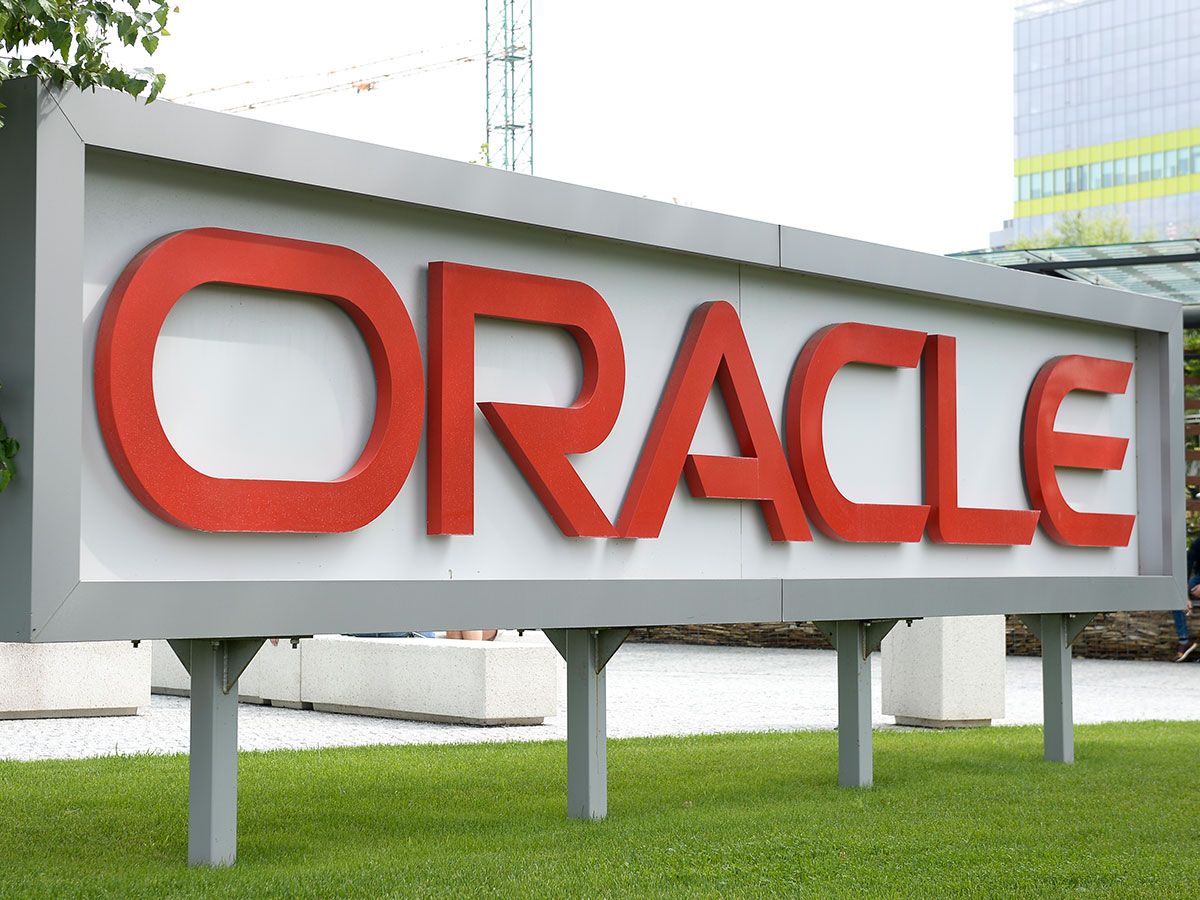Oracle’s [ORCL] share price hit a year high of $60.50 back in July, but since then the stock has been on a downward trend, falling 13.5% to trade just north of $52. Some analysts are now questioning whether using debt to fuel a share buyback scheme has put shareholder payouts in jeopardy.
Why are we talking about Oracle?
Debt-powered share buyback
Oracle have spent 60% of their money on share buybacks in the last 12 months. All of this powered by debt. While these spending sprees might benefit earnings per share, operating and free cash flows of $14.6 billion and $12.9 billion look meagre.
It’s a problem analysts at Stone Fox Capital have noticed. They suggest that current free cash flows only support a yield of 7.6% - way off the 21% payout investors currently enjoy.
Then there's the fact that Oracle looks to have paid for stock that wasn't cheap enough to justify the spree in the first place, with some analysts predicting revenue growth of just +2% over the next five years.
Oracle strikes back
If cash flow is tight, then it’s no surprise that Oracle is looking to fight tooth and nail for every contract.
Last week, the company started an appeal process against a Federal Court ruling over the U.S. Department of Defense’s (DoD) Joint Enterprise Defense Infrastructure (JEDI) cloud contract.
Oracle found themselves knocked out of the running for the contract, which is now being contested by cloud rivals Amazon [AMZN] and Microsoft [MSFT].
In the filing, Oracle claim that the JEDI cloud contract infringes on federal procurement laws. Underlying Oracle's argument is the belief that the US government's policy of a single cloud service winner is unfair.
| Market cap | $173.663bn |
| PE ratio (TTM) | 17.53 |
| EPS (TTM) | 2.97 |
| Operating Margin (TTM) | 35.49% |
Oracle share price vitals, Yahoo Finance, 2 September 2019
Why is Oracle fighting the ruling?
Supplying governments’ cloud computing has become a lucrative endeavour, with the likes of Salesforce seeing huge growth in digital transformation contracts. The DoD contract alone is thought to be worth £10 billion over ten years.
Over the past few years, Oracle has invested heavily in moving its business from on-site services to the cloud. Piling on the costs has been a number of acquisitions, including Netsuite for $9.3 billion and Aconex for $1.3 billion.
These acquisitions have seen Oracle's cloud and license operations account for 83% of the company's revenues, which goes some way to explaining the fervour with which Oracle is willing to challenge the government’s decision.
83%
Amount of Oracle's revenue accounted for by cloud and license operations
How has Oracle been performing?
In June, Oracle managed to beat analyst expectations in its latest quarterly update. Revenue came in at $11.3 billion, beating Wall Street forecasts of $10.95 billion. Its cloud services and license support unit also beat expectations, generating $6.8 billion.
At the time, Brian White, an analyst at Monness Crespi Hardt & Co., wrote in a note to investors:
"Although we are pleased with this performance, we remain on the sidelines with a Neutral rating given the muted results in recent quarters and cloud threats."
But one solid quarter doesn't mark the start of a trend. Weighing on some analysts minds was the fact that recent initiatives wouldn't contribute to the bottom line for some time. Oracle needs to continue to net big contacts for its cloud services if investors are going to back the stock, especially if it is to use debt to fund initiatives like the recent buyback.
“Although we are pleased with this performance, we remain on the sidelines with a Neutral rating given the muted results in recent quarters and cloud threats” - Monness Crespi Hardt & Co. analyst Brian White
Time to buy?
Oracle carries a 17x price-to-earnings multiple, which is cheaper than other cloud stocks. For example, Amazon [AMZN] is saddled with a 73.69x multiple, and Microsoft’s [MSFT] 23.34x ratio isn’t cheap either. A price-to-book of 7.97 over the past 12 months also comes in significantly below the respective ratios supported by AMZN and MSFT shares, and could indicate fair value in a high growth sector.
For income-seeking investors, the stock also has a 1.85% forward dividend yield. Although this might come under pressure if Stone Fox’s assessment is correct and Oracle is forced to cut back on shareholder rewards. If shareholders start selling a stock that is no longer as rewarding as it once was, then the share price could come under pressure.
Continue reading for FREE
- Includes free newsletter updates, unsubscribe anytime. Privacy policy





